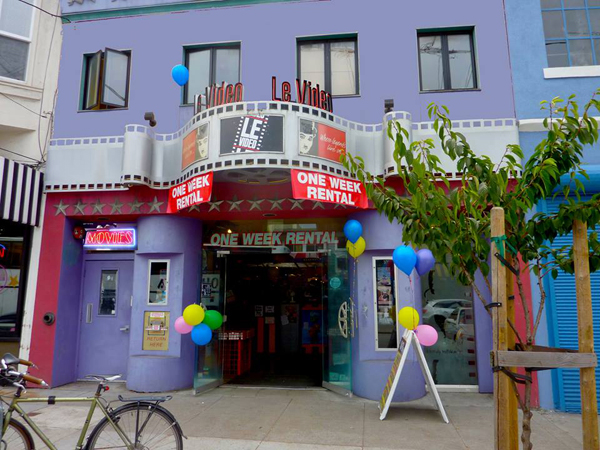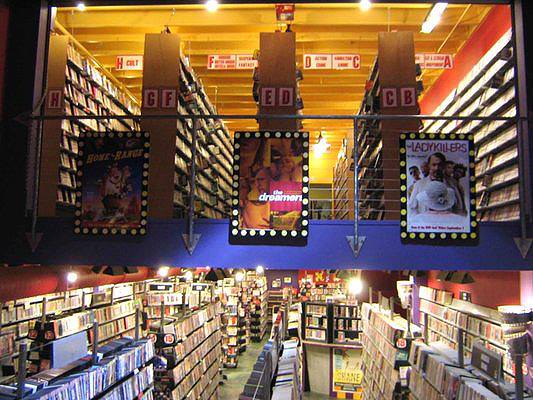
Since 1980, having faced a number of relocations and industry trends (laserdiscs!), San Francisco's beloved video rental store Le Video has remained an impressive treasure trove for movie fans of every caliber. For the uninitiated, the store carries over 90,000 movie titles, a lot of which are quite hard to find. Organized meticulously by countries, directors, screenwriters, and various and evolving sub-genres (Shaw Brothers, Giallo, Spaghetti Westerns), renting a movie at Le Video has always been a little journey of discovery.
I was barely out of my teens when I got a job as a clerk at the store. This was in the '90s, and it's there that I cut my teeth on all things film, art, and being young (and a tiny bit pretentious) in San Francisco. Besides expanding my cinematic vocabulary -- from Pedro Almodóvar to Twin Peaks and Vincent Price -- the store is where I came out of my shell and met a uniquely diverse bunch of people, customers and employees alike.
Which is why, when I recently learned of Le Video's possibly imminent closure, I felt a mixture of sadness and guilt. Sadness, because Le Video still holds a special place in my heart, and I still have friends who work there. Guilt, because like many others, I've succumbed to the instant gratification offered to me by the various movie streaming and mail-order services that have emerged over the past few years. Le Video's struggle to remain open is just one of many examples of this sea change (the biggest being Blockbuster's 2013 exit from the retail market), and video rental profits for brick and mortar businesses have been taking a hit for many years now.

Discussing the store's uncertain future with John Taylor, the Buyer for Le Video, I wondered about the difference in how we discover and access information these days. In pre-Wikipedia, YouTube and viral culture days, you had to turn to recommendations from friends, or employees at places like Le Video, and those thick tomes indexed annually by critics like Leonard Maltin. While finding stuff online is a lot easier, there is also a temptation to be more passive about it, relying on algorithms that make suggestions based on your history, or following trending content on various social networks. It's not that we're not making any effort at all, but when we want a quick selection, it's easy to settle for readily accessible recommendations.
An intelligent system providing suggestions based on your personal preferences is impressive, but these recommendations are still no replacement for human interaction, and are sometimes a bit... odd. ("Did you enjoy Dexter? Try Dexter's Laboratory!" Quit being cute, Netflix.) At the store, John said, "You can have a dialogue that lets the staff do a better job to pinpoint something the customer would like. I usually try and ask about something else the person likes, to give me an idea, but from there I use personal experience, not programming to make a determination."

